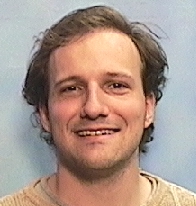Dr. Ford arrived at UF in the Fall of 2007. As a new faculty member, he faced the usual challenges of establishing a research group at a new institution. As a theoretical and computational astrophysicist, he faced the additional challenge of acquiring the computational resources essential to his research. There was a time when his only choice would have been to negotiate with his department chair for space and contract with the physical plant for the renovations, power, and cooling required for a medium-sized cluster. Subsequently, it would be necessary to specify, purchase, install and configure the cluster. In its entirety the process described can easily take six months or more.
In order to jump start his research group, Dr. Ford contacted the UF HPC Center and met with its director and staff and viewed its facilities. After concluding that the HPC could meet his group’s needs, he became a shared-resource investor using $28,000 of his startup funding. He and his group were immediately able to run jobs and had access to processors, storage, and network resources well beyond what he could have purchased on his own. Additionally, his postdocs and colleagues had the assistance they needed to quickly compile and run their MPI-based applications on the HPC Center cluster.
In the summer of 2008, Dr. Ford was awarded a NASA contract to test the planet hunting capabilities of the redesigned Space Interferometry Mission. The award included $29,461 for computing costs which Dr. Ford invested in the HPC Center. In return, the HPC Center reserved sixty-four processors for exclusive use by the Ford group for the approximately three months required to complete the calculations. Among the different groups NASA contracted to perform these calculations, Dr. Ford’s group was the first to provide their results to NASA and was nominated for a NASA Group Achievement Award. Subsequently, Dr. Ford’s team has been awarded a second grant ($75,000) for follow-up investigations related to the above PlanetQuest mission, as well as a separate NASA grant that provided an additional $16,940 for computing resources at the HPC Center.

